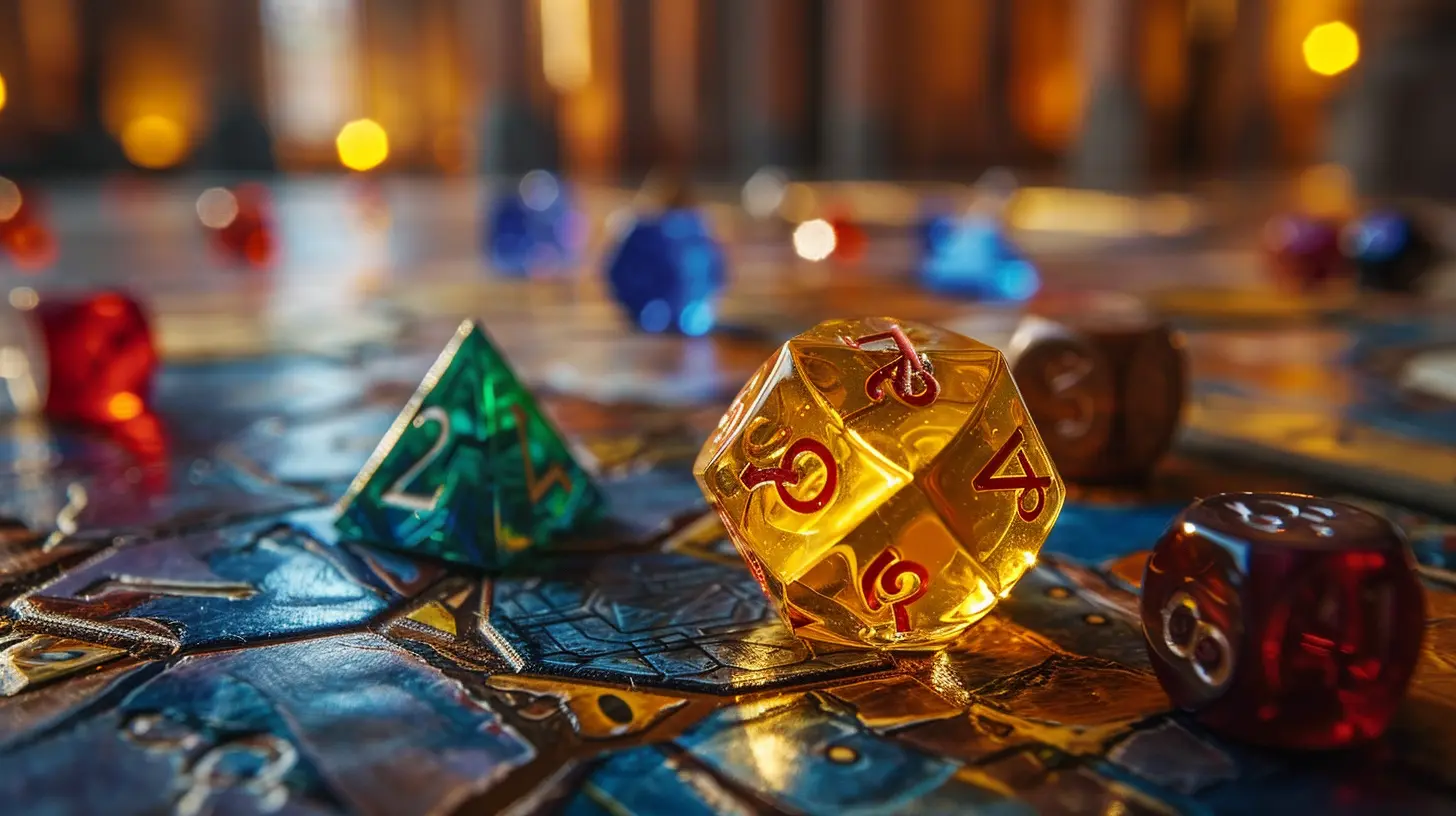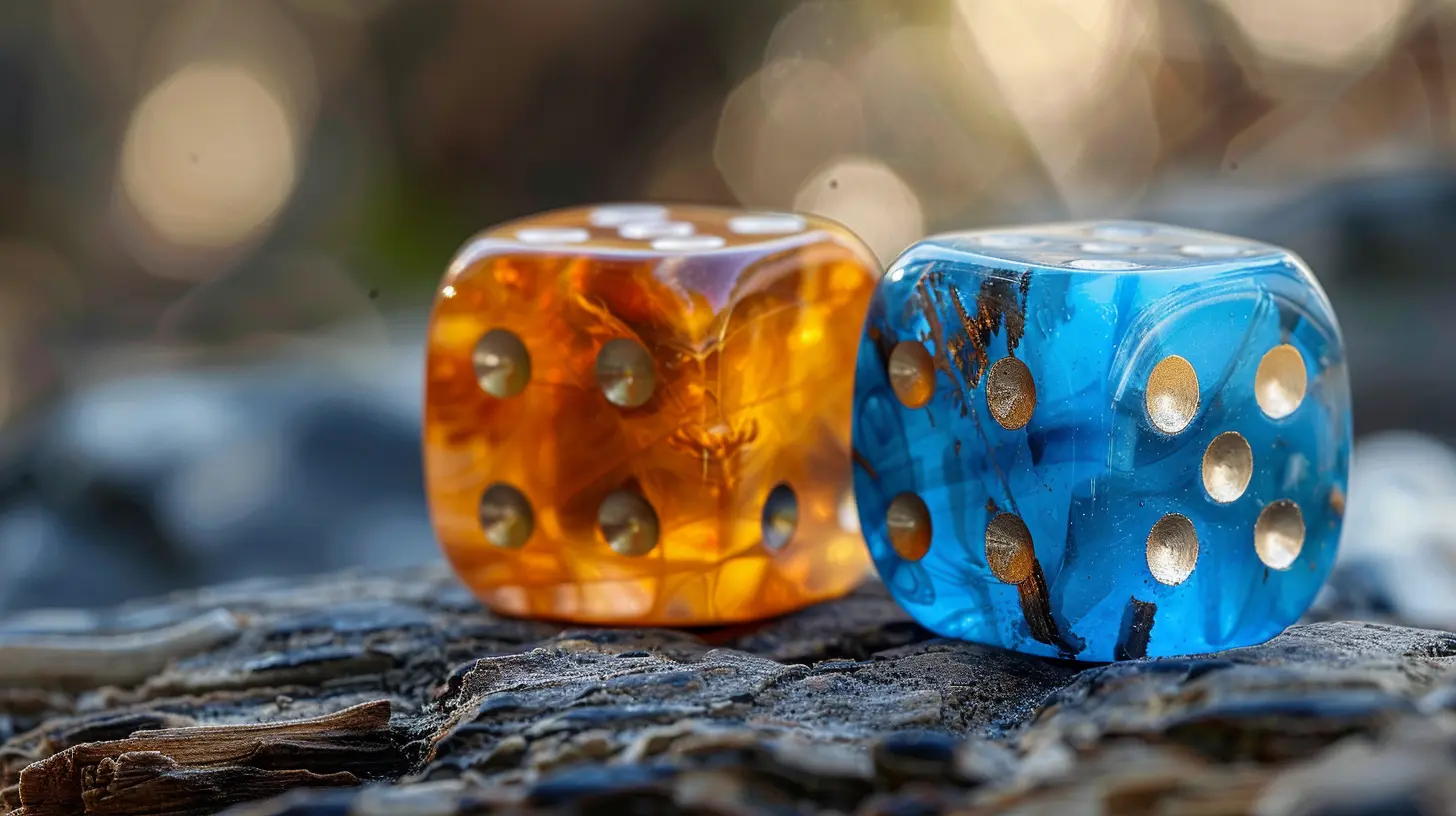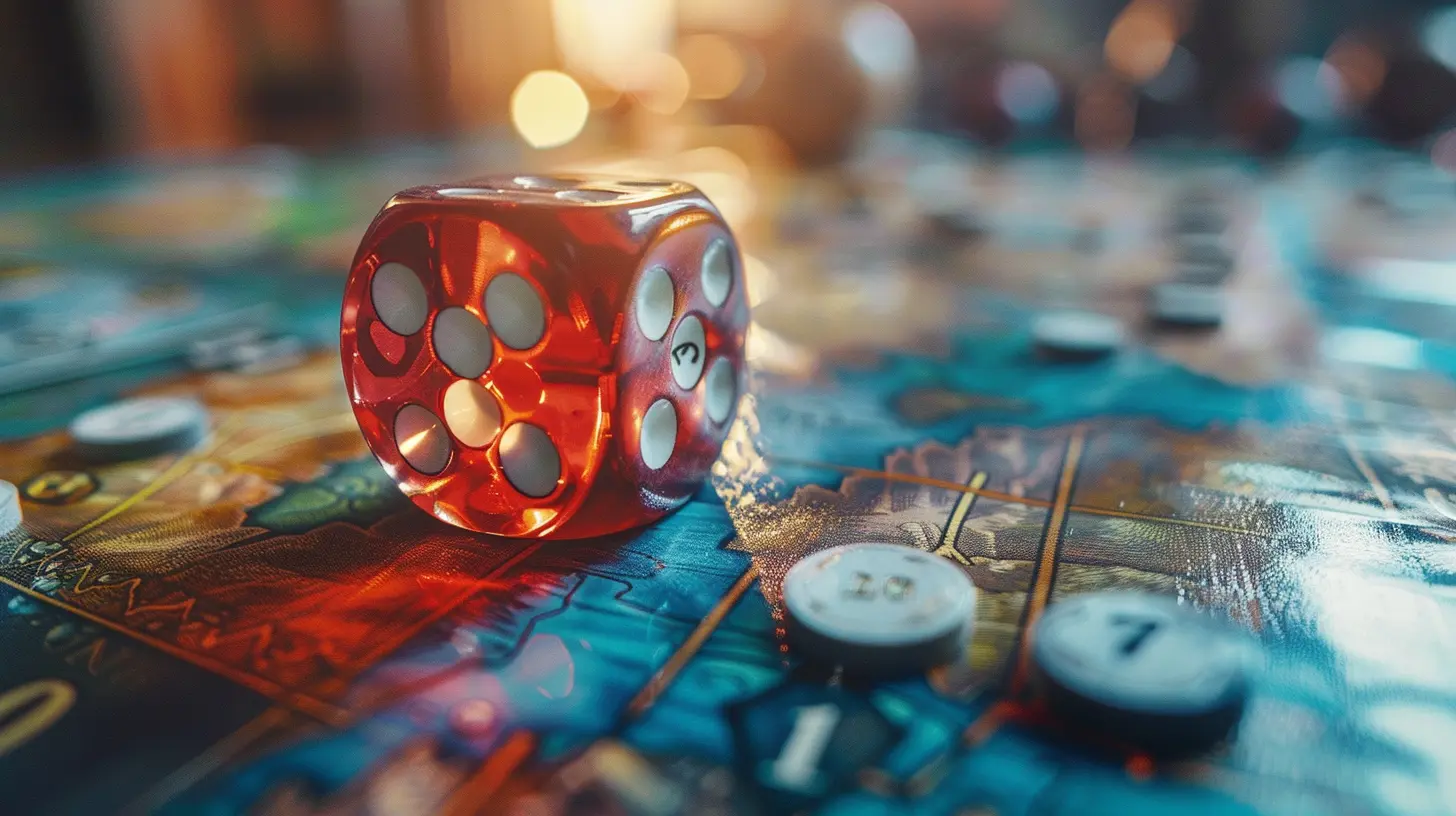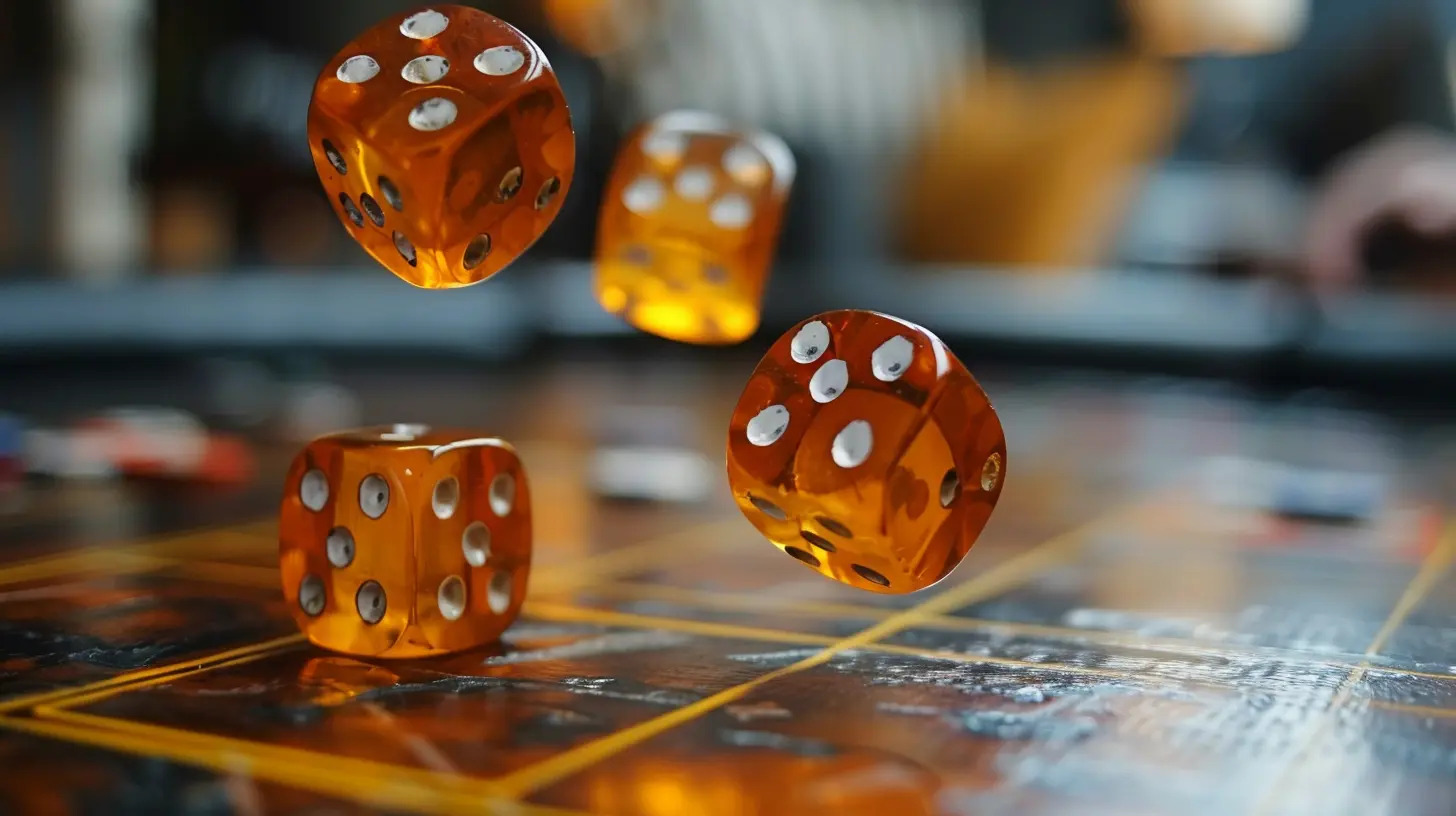Balancing Luck vs Skill: A Deep Dive Into Game Design
25 July 2025
When you sit down for a game session—whether it's a fast-paced shooter, a complex strategy game, or even a humble board game—have you ever stopped to wonder: am I winning because I’m good, or am I just lucky?
That, my fellow gamer, is the golden question that game designers have been grappling with for decades. Getting the balance between luck and skill isn’t just about fairness; it’s about fun. Nail the balance, and you’ve got a masterpiece. Miss the mark? It could leave players bored, frustrated, or just plain indifferent.
So, let's dive headfirst into this curious corner of game design and figure out what makes games tick when it comes to luck vs skill.

🎲 What Are Luck and Skill in Games Anyway?
Before we go head-to-head with the concept, let's define our players.Luck is when outcomes are influenced by randomness or chance. Think dice rolls, card draws, loot drops—it’s the stuff you can’t fully control.
Skill, on the other hand, is all about the decisions you make, your reaction speed, your strategy, and how well you understand the game mechanics. It's YOU directly influencing the outcome.
Both are legit parts of game design, but how you mix them? That’s where things get spicy.

🎮 Pure Skill Games vs Pure Luck Games
At the extreme ends of the spectrum, you've got:- Chess – 100% skill, 0% luck. It’s just you, your brain, and the other player. No dice to bail you out here!
- Snakes and Ladders – Pretty much 100% luck. You roll the dice and hope for the best.
Now, let's be real—most modern games float somewhere in between. And that’s exactly where the magic happens!

🧠 Why Game Designers Lean Into Both
You might be asking, “Why not just make games all skill-based? Isn’t that more fair?”Well… not always.
Game designers include luck to level the playing field, create exciting moments, and throw uncertainty into the mix. It’s about unpredictability—which, if done right, keeps things fresh.
Ever played Mario Kart? Even if you’re in last place, a lucky Blue Shell might just change your fate. That kind of design helps casual players feel included and encourages them to keep coming back for more.
On the flip side, designers include skill to reward mastery, encourage replayability, and let players feel like their choices matter. Winning because you made a brilliant move? That’s pretty satisfying, right?

🎯 Hitting the Sweet Spot: A Balancing Act
So here's the trick: too much luck makes the outcome feel arbitrary. Too much skill? The more experienced always wins, and new players just bounce off.Finding that perfect luck-to-skill blend is like designing a roller coaster. It's got to have ups and downs, loops of uncertainty, and just enough control so players feel like they're steering the ride.
Let’s break down some well-known games and how they handle this balance.
💥 Game Examples That Mix Luck and Skill Like Pros
1. Poker – The OG Luck-Skill Hybrid
Sure, you can’t choose your cards, but how you play them? That’s the game. Bluffing, betting, reading opponents—all skill. Yet, even the best player can lose to a lucky flop.This fluctuation keeps things dramatic. A novice might win on sheer fortune, but over many rounds, skill always rises to the top.
2. Hearthstone / Magic: The Gathering – Card-Based Strategy
Deck-building games are skill-heavy, but card draw adds randomness. This combo makes every match feel unique. You plan and prepare, but the unexpected still happens. It’s frustrating sometimes? Absolutely. But also exhilarating.Great designers here include mechanics to mitigate luck, like tutoring cards, scrying, or mulligans, letting skill shine through the noise.
3. Fortnite / Warzone – RNG Meets Tactics
Battle royales are wild. Loot is random. Circle placement? Random. But player movement, choice of when to fight, positioning—those are all skill-driven.These games keep you on your toes. You can get a bad drop, but if you're clever, you can still outplay the guy with the golden loadout.
4. Slay the Spire – Roguelike Perfection
Roguelikes are the poster children of skill-luck balance. You get random cards or events, but over time, you learn how to adapt. The better you understand the game, the more consistently you win—despite the randomness.And that’s the sweet spot: randomness forces adaptation, and great players shine through.
🔧 Tools Designers Use to Fine-Tune the Balance
There’s not a single formula to follow, but here are a few tricks of the trade:1. Randomness with Limits (Controlled RNG)
Random doesn’t have to mean chaotic. Smart RNG systems, like “bad luck protection” (hello, World of Warcraft loot systems!), ensure that over time, players get what they deserve.This keeps things feeling fair even when randomness is in play.
2. Rubber Banding Mechanics
Games like Mario Kart throw you a lifeline when you’re behind. This keeps matches tight and unpredictable. Critics hate it sometimes, but casuals love it.It’s all about engagement—games that are always close are more fun to watch and play.
3. Skill Gates
Let’s say you open a loot box and get an awesome weapon. That’s luck. But using it well? That’s skill. Designers often make powerful tools require mastery to actually be effective.This lets luck give opportunities, but skill decides the outcome.
4. Information Control
Hidden info—like in Among Us—adds uncertainty. But over time, players get better at deduction or deception. Luck might hide the truth, but skill uncovers it.5. Multiple Layers of Interaction
Games like Civilization mix luck (map generation, barbarian attacks) with deep strategy. Even if the early game is rough, your choices compound.Design-wise, giving players multiple paths to success means that luck won’t kill their momentum.
👥 Player Types: Who Likes What?
Different players crave different things.- Competitors and hardcore gamers lean towards skill-based games. They want to prove themselves.
- Casuals and social players often enjoy a bit more luck—it keeps things light and surprising.
- Tinkerers and strategists often appreciate a mix, where every game feels fresh, but their skills still shine over time.
Understanding your audience is crucial. A game for esports? Skill-heavy. A party game? Cue the chaos.
📈 The Long-Term Payoff of Getting It Right
When a game hits that magical balance, it keeps players coming back.Why? Because they feel:
- Challenged, but not punished.
- Surprised, but not blindsided.
- In control, but not bored.
Games like Rocket League (pure skill) or League of Legends (mostly skill with some unpredictability) thrive because they reward improvement. But sprinkle in just enough unexpected moments, and even losses don’t feel like a drag.
Plus, well-balanced games create great stories. Those “you had to be there” moments? They often come from a mix of brilliant plays and outrageous luck.
🧪 So… Who Should Win? Luck or Skill?
Here’s the truth—neither should “win.”The goal isn’t to eliminate one or the other. It’s to use both like ingredients in a recipe. You don’t want a soup that’s 100% salt or 100% broth. You want a flavor that keeps you coming back, bowl after bowl.
Same thing with game design.
👨🔧 Tips For Budding Game Designers
Thinking of dabbling in game design yourself? Here are a few reminders:- Test with real players — You can’t always predict how randomness will feel until you watch someone experience it.
- Build in ways for skill to matter — Even if luck is heavy, ensure experienced players have room to shine.
- Let luck create drama, not dominate outcomes.
- Offer tools to mitigate bad luck — Let players “dig out” of bad situations if they play smart.
- Read the room — A competitive ranked shooter should favor skill. A family board game can go wild with chaos.
🧩 Final Thoughts: The Art, Not Science, of Balancing Luck and Skill
Game design isn’t just lines of code or a set of rules on paper. It’s an art form. And like any art, finding the right balance between luck and skill is all about feel.Luck adds spice. Skill provides substance.
When games get this balance right, it feels like magic. You win and feel proud. You lose, but still feel like you had a shot. That’s what keeps us pressing "Play Again."
So the next time you clutch a win thanks to a crazy headshot or lose because of a dice roll, take a second to appreciate the dance. It’s not always fair—but it’s almost always fun.
all images in this post were generated using AI tools
Category:
Tabletop GamesAuthor:

Stephanie Abbott
Discussion
rate this article
2 comments
Aria McClintock
Great insights! Balancing luck and skill truly enhances game experiences. Keep it up!
November 23, 2025 at 6:10 PM

Stephanie Abbott
Thank you! I'm glad you found the insights valuable. Balancing luck and skill is indeed crucial for an engaging game experience!
Clarissa Yates
In the shadows of game design, luck and skill dance a delicate waltz. What secrets lie behind the curtain? Join us as we unravel the intricate balance that could make or break your next gaming experience.
August 6, 2025 at 2:43 AM

Stephanie Abbott
Thank you for your insightful comment! Exploring the balance of luck and skill is indeed crucial in game design, as it shapes player experiences and outcomes. Let’s delve deeper into this fascinating interplay!


